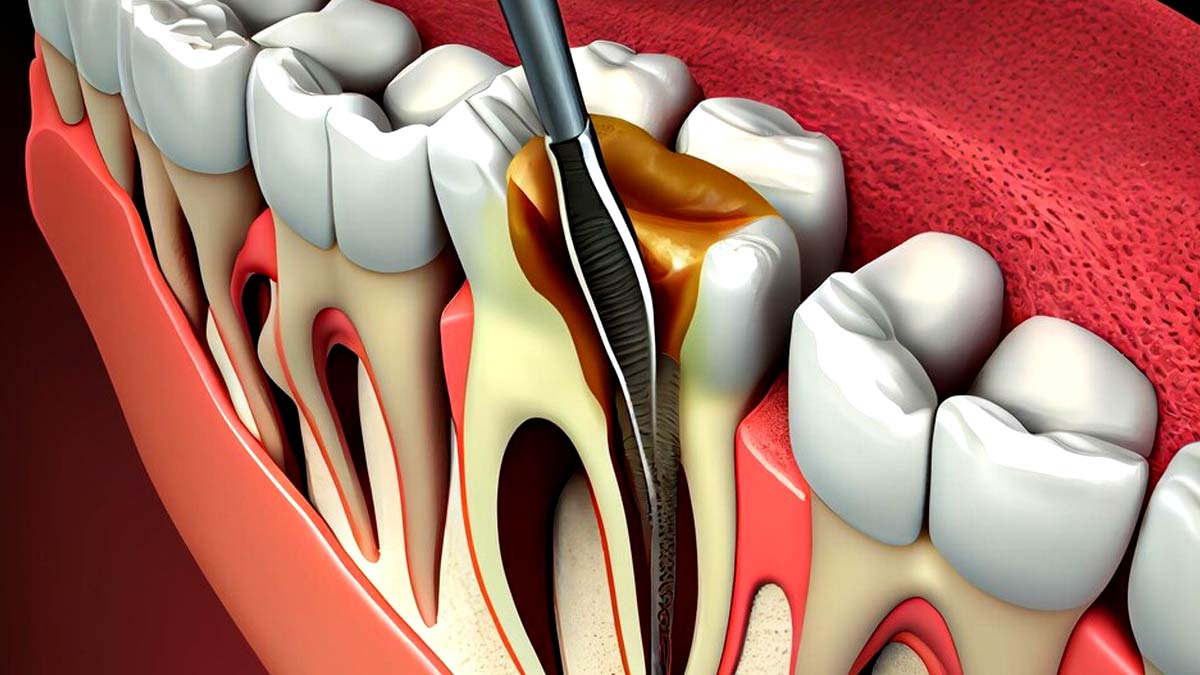
Oral health plays a vital role in your overall well-being, and dental issues can cause considerable discomfort and complications if left untreated. One such condition that requires immediate attention is a dental abscess. A dental abscess is a painful and potentially serious dental infection that can affect anyone.
We spoke to Dr Nihal Yadav, BDS, Amayra Dental Clinic, Kaushik Enclave, Burari, Delhi and Former Resident, Deen Dayal Hospital, Hari Nagar, Delhi, to understand the causes, symptoms, and treatment options for dental abscesses.
What is Dental Abscess?
"A dental abscess is a collection of pus that forms within the teeth, gums, or surrounding tissues," said Dr Yadav. According to the Dental Research Journal, approximately 60-65% of the overall population in India is impacted by dental caries.
"The occurrence takes place when bacteria invade the dental pulp, which is the inner soft portion of the tooth containing nerves, blood vessels, and connective tissues," said the doctor.

"The bacteria enter through a crack or cavity in the tooth or via gum disease, reaching the pulp and causing an infection. The body responds by sending white blood cells to fight the infection, leading to the formation of pus," he explained.
Also Read: Importance Of Making Dental Nourishment Part Of Your Daily Regimen
Symptoms of Dental Abscess
Recognising the symptoms of a dental abscess is crucial for early detection and treatment. Some common signs include, as per Dr Yadav.
- Severe toothache: A persistent and throbbing toothache is often the first indication of a dental abscess. The pain may worsen when biting or applying pressure to the affected tooth.
- Swelling: Inflammation and swelling of the face, cheeks, or lymph nodes in the neck may occur as the infection progresses.
- Fever and malaise: In some cases, a dental abscess can lead to fever, general discomfort, and a feeling of being unwell.
- Sensitivity to temperature: The affected tooth may become sensitive to hot or cold temperatures.
- Painful gums: The gums around the infected tooth may appear red, swollen, and painful.
- Bad breath: The buildup of pus and bacterial activity can cause persistent bad breath.
Examination and Diagnosis

Early diagnosis is crucial to prevent the spread of infection and to preserve the affected tooth. "A dentist will conduct a thorough examination of the affected area, review your symptoms, and may take X-rays to confirm the presence of an abscess," said Dr Yadav.
Treatment Options
"The treatment for a dental abscess typically involves draining the pus to eliminate the infection. This can be achieved through root canal therapy, which involves removing the infected dental pulp and sealing the tooth to prevent reinfection," suggested the doctor.
"In severe cases, the dentist may extract the affected tooth. Antibiotics are also prescribed to combat the infection and prevent its spread," he added.
Also Read: Dental Care Post 30: Keep Your Aging Mouth Young
Pain Management
Since dental abscesses can be extremely painful, your dentist can prescribe you Over-The-Counter (OTC) pain relievers or medications to manage the pain and discomfort.
Preventive Measures
Dr Yadav advised maintaining good oral hygiene is crucial in preventing dental abscesses. Regular brushing, flossing, and dental check-ups can help identify and address dental issues before they escalate into more severe problems.
Conclusion
If you experience persistent tooth pain, swelling, or any other symptoms associated with a dental abscess, do not delay seeking professional dental care. Prevention is always better than cure, so make sure to maintain good oral hygiene practices and attend regular dental check-ups to keep your smile healthy and bright.
[Disclaimer: This article is for informational purposes only. Consult your healthcare provider to get a thorough diagnosis and treatment as per your health needs.]
Image Credits: freepik







